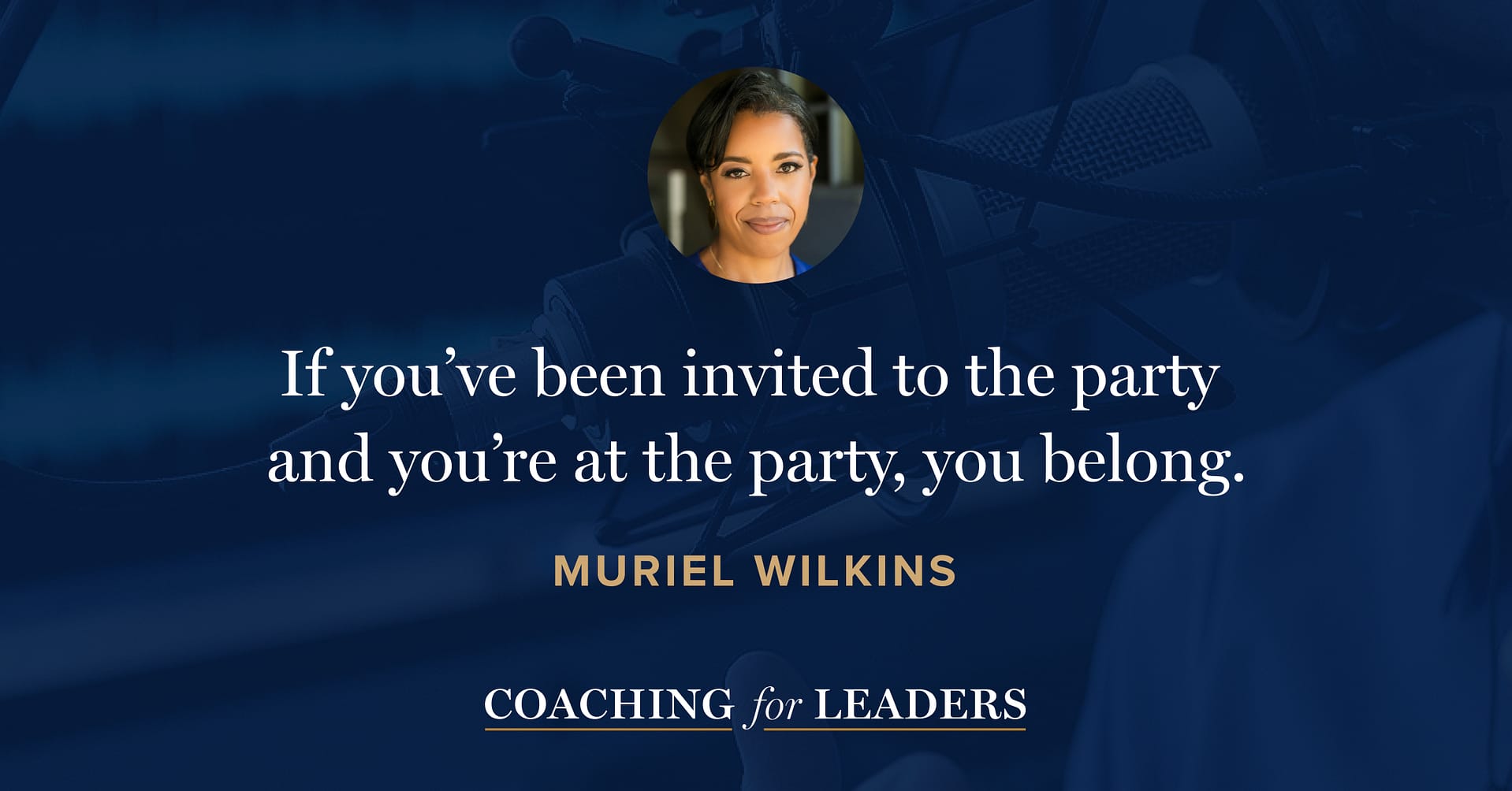Muriel Wilkins: Leadership Unblocked
Muriel Wilkins is the founder and CEO of Paravis Partners and a sought-after C-suite adviser and executive coach with a twenty-year track record of helping senior leaders take their performance to the next level. She is the coauthor of Own the Room and the host of the Harvard Business Review podcast Coaching Real Leaders. She’s just released her newest book, Leadership Unblocked: Break Through the Beliefs That Limit Your Potential (Amazon, Bookshop)*.
You may have spent years aiming for the leadership role you now have. But now, once you’re in the job, it can be really disorienting to feel like you don’t belong. In this conversation, Muriel and I explore this reality that a lot of leaders face and what do when you run into it.
Key Points
- Feeling like you don’t belong is a normal and common reality at inflection points in your career.
- A vicious cycle can emerge: you’re waiting to be included while others are waiting for you to engage.
- While you can’t control others, you can break the part of the pattern you have control of.
- Define your value proposition. What gets missed when you don’t show up?
- Remind yourself of shared goals or values with the group. This prevents the small stuff from distracting you as much.
- Identify a few supportive people and build relationships with them.
Resources Mentioned
- Leadership Unblocked: Break Through the Beliefs That Limit Your Potential by Muriel Wilkins (Amazon, Bookshop)*
Interview Notes
Download my interview notes in PDF format (free membership required).
Related Episodes
- How to Start a Big Leadership Role, with Carol Kauffman (episode 617)
- How to Start Better With Peers, with Michael Bungay Stanier (episode 635)
- The Habits That Hold Leaders Back, with Marshall Goldsmith (episode 696)
Discover More
Activate your free membership for full access to the entire library of interviews since 2011, searchable by topic. To accelerate your learning, uncover more inside Coaching for Leaders Plus.





